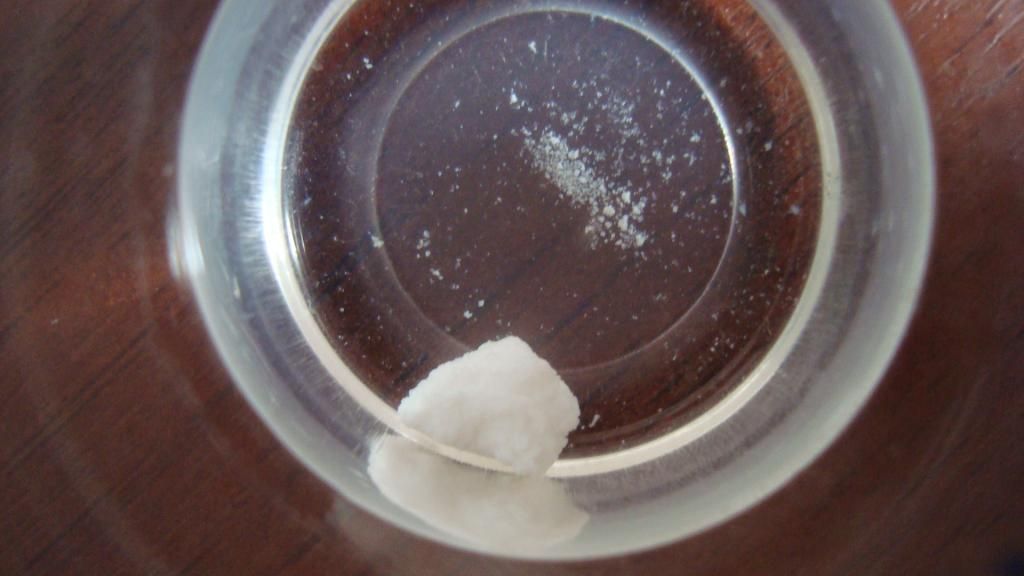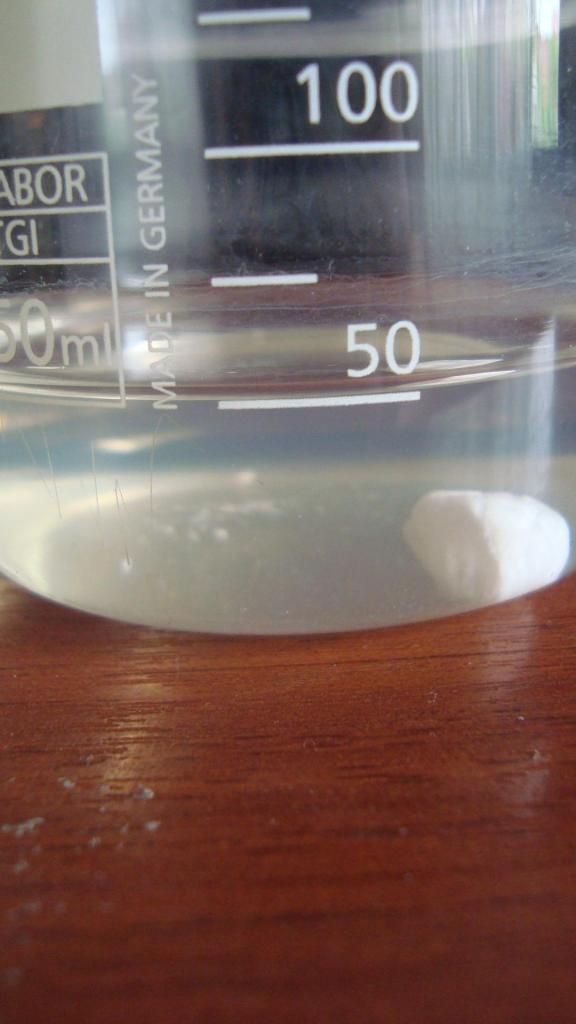Hi everybody
I’m trying to make my own potassium silicate solution. Yesterday i bought in a chemistry store this potassium silicate.
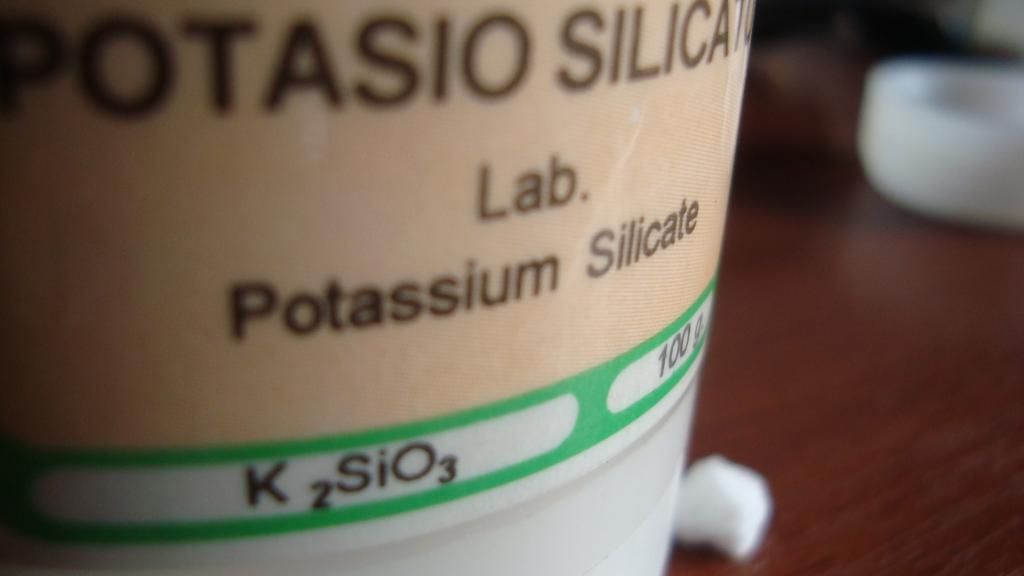
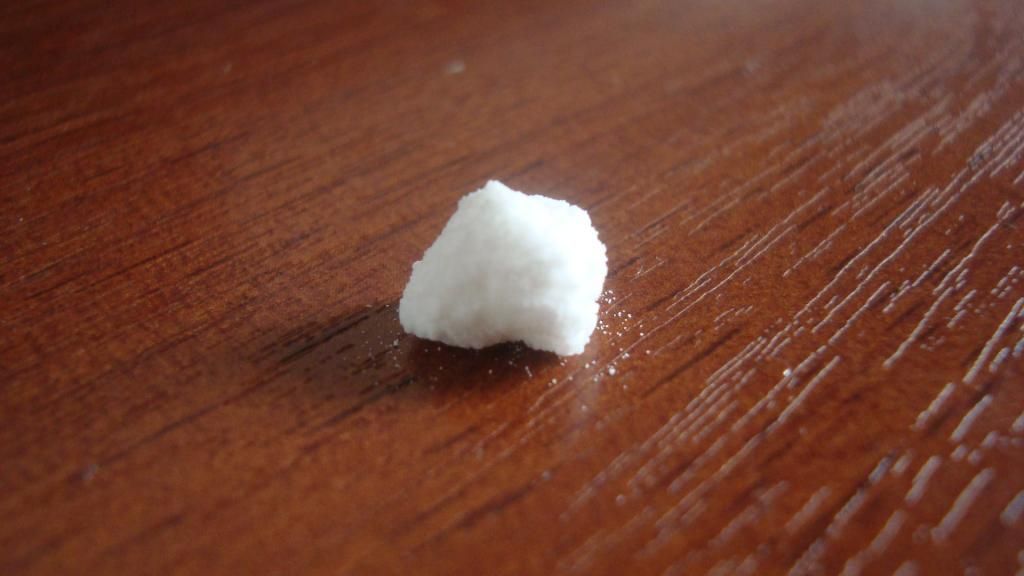
But when i try to dissolve it in hot water, the potassium silicate still insoluble.
This is a solubility experiment.
pH water before PS 7.1
pH after put PS into water 10.7
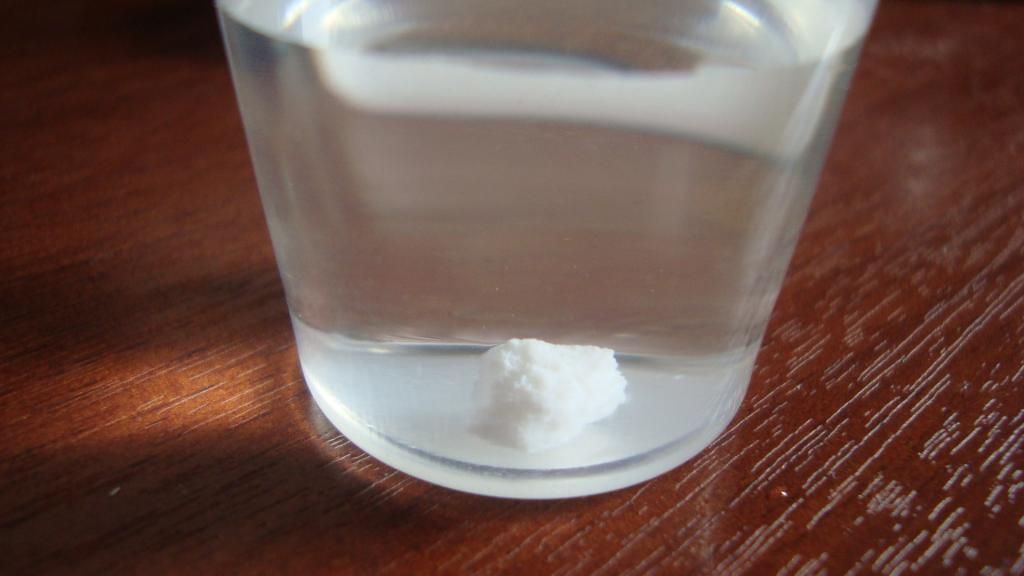
I break the rock to help it dissolve, but still no dissolve.
Someone has been experimenting with PS solutions?. Any idea?
Thanks!
I’m trying to make my own potassium silicate solution. Yesterday i bought in a chemistry store this potassium silicate.


But when i try to dissolve it in hot water, the potassium silicate still insoluble.
This is a solubility experiment.
pH water before PS 7.1
pH after put PS into water 10.7

I break the rock to help it dissolve, but still no dissolve.

Someone has been experimenting with PS solutions?. Any idea?

Thanks!

